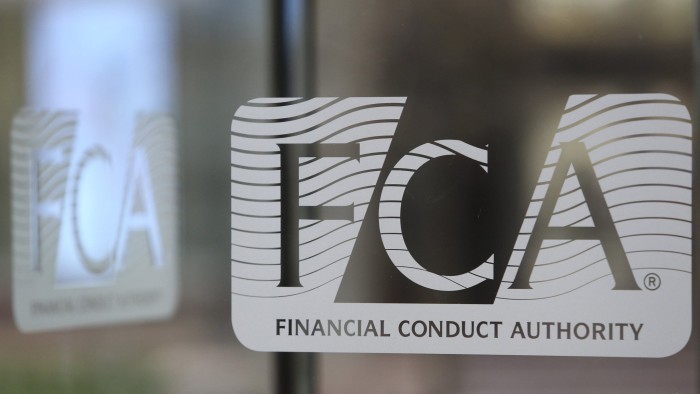Passive fund managers poised to profit from the FCA’s proposals

Roula Khalaf, Editor of the FT, selects her favourite stories in this weekly newsletter.
The shake-up of the fund management industry proposed by the UK financial regulator has been classed as a deliberate attempt by the Financial Conduct Authority to push investors — both large and small — towards cheaper passive funds.
The FCA proposed on Friday that investment companies overhaul their charging structures to tackle what it sees as serious failings in the sector’s treatment of investors and pension funds. It unveiled a series of remedies, including an all-in fee, so investors can compare charges easily.
The regulator stopped short of introducing a cap on the fees asset managers charge, although the proposals dealt a blow to active managers, which have come under heavy criticism for charging investors high fees despite poor performance.
Justin Bates, an analyst at Liberum, the stockbroker, said: “The FCA clearly wants to drive the market more towards cheaper, passive investing. No question about it.”
In its 200-page report the watchdog estimated that, over 20 years, a £20,000 investment in a passively managed fund tracking the FTSE All-Share index could yield a return 44 per cent larger than that of an actively managed equivalent.
Mr Bates said: “The evidence it provides of the benefits of passive investment will make a lot of active manager chief executives very nervous.”
Owen Lysak, senior associate at Clifford Chance, the law firm, added: “This will mean investors looking more at passive [and] will mean investors watching much more closely what they are charged by active managers.
“Active managers will be under much more pressure as to how they market their funds to investors, and can expect many more questions on the real substance of their strategies.”
Assets managed in passive mutual funds have grown four times faster than traditional active products since 2007 and now stand at $6tn globally, according to Morningstar, the data provider. However, at $24tn, the assets held in active funds dwarfs that amount.
Aneel Keswani, director of the Centre for Asset Management Research at London’s Cass Business School, who helped the FCA compile its report, said: “Fees for passive funds have fallen over the past 10 years while the level of active fees has not fallen, suggesting that competitive pressures are not at work in the active funds arena.
“If funds that charge more did better, that would be fine, but their report also finds this is not the case.”
In Europe, four out of five active equity funds failed to beat their benchmark over the past five years, rising to almost 9 out of 10 over the past decade, according to analysis published last month by S&P, the index provider.
Gina Miller, co-founder of SCM Private, the investment boutique that has long campaigned on hidden charges and mis-selling in the industry, said: “The FCA paper is a truly comprehensive and well-founded analysis exposing the various dishonesties in the UK fund management industry. The FCA has rightly exposed the lack of price competition in active funds.”
Christopher Woolard, executive director of strategy and competition at the FCA, who presented the regulator’s findings at a briefing at its headquarters in Canary Wharf on Friday, added: “Fund charges, on average, in the active space have remained broadly the same for the past decade, whereas we have some evidence that the cost for passive funds has fallen. For actively managed funds there is also considerable price clustering.”
Active fund managers put a brave face on the FCA’s proposals, while the Investment Association, the lobby group for UK asset managers, said it “welcomed the spirit behind the FCA market study to improve confidence in the industry”.
Martin Gilbert, chief executive of Aberdeen Asset Management, the FTSE 250 fund house, added that the FCA’s interim report brought focus, and a sense of urgency, to confronting some important industry issues that affect customers.
“There is a need for increased transparency in relation to the services provided, the costs of such, and also for ensuring value for money,” he said.
Many others believe the FCA’s report will herald big changes for the £7tn industry and will challenge the fundamentals of the investment management model in a way not seen before.
Robert Steers, co-founder and chief executive of Cohen & Steers, the $50bn US-listed asset manager, said: “At some point, every industry faces a defining moment — a reckoning that fundamentally alters the market landscape. It is a way of purging stale business models to make room for the next generation.
“Those who anticipate and position themselves for the sea change have a chance to survive and even thrive. Those who do not are relegated to the dustbin of history alongside Eastman Kodak [the imaging company formerly known for photography] and Blockbuster [the video rental provider]. That moment has arrived for asset managers.”
The FCA will consult with the industry on the proposals until February 2017. Its final ruling on the asset management industry is expected in the first half of 2017.
Comments